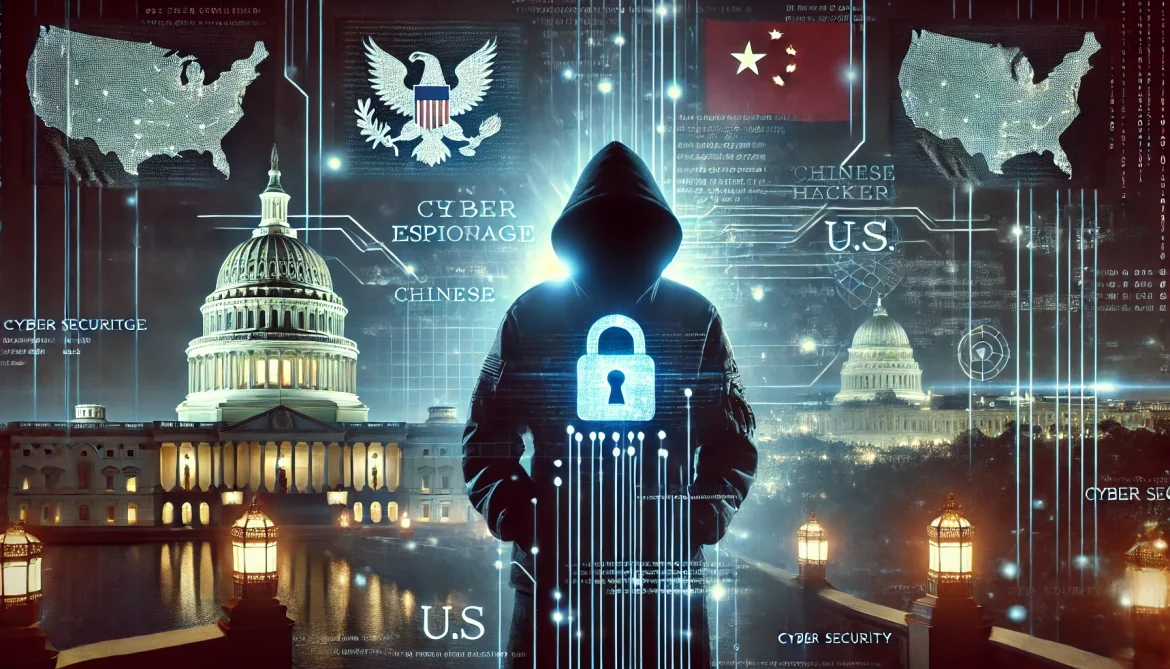The U.S. Department of Justice (DOJ) has announced sweeping charges against 12 Chinese nationals, including two officers from China’s Ministry of Public Security (MPS), for their involvement in a decade-long hacking operation that targeted U.S. companies, government agencies, and foreign institutions worldwide. Among those charged are Yin Kecheng, 38, and Zhou Shuai, 45, who are accused of leading sophisticated cyberattacks that resulted in the theft of sensitive data and caused millions of dollars in damages.
Federal prosecutors describe the cyber espionage operation as one of the most aggressive hacking campaigns to date, facilitated by a private technology firm known as i-Soon. The firm allegedly acted as a cyber mercenary unit, selling stolen data to various Chinese government agencies and intelligence operatives. The DOJ asserts that i-Soon functioned as an extension of Beijing’s broader strategy to undermine U.S. cybersecurity and gain strategic advantages in technology, trade, and global diplomacy.
The indictment outlines how the accused hackers infiltrated networks by deploying advanced malware, phishing attacks, and zero-day exploits. The group is believed to have gained access to highly classified information from U.S. government agencies, financial institutions, and major technology firms. Additionally, the DOJ confirms that their hacking efforts extended beyond the United States, targeting international organizations, foreign ministries in Asia, and individuals critical of the Chinese government.
Cybersecurity analysts warn that this case underscores the evolving threat of state-sponsored hacking campaigns that blur the lines between government operations and private cybercriminal enterprises. The charges mark another escalation in ongoing U.S.-China cyber tensions, with Washington taking a firm stance against what officials describe as “persistent and malicious cyber activity” orchestrated by Chinese state actors.
The indictment reveals that i-Soon not only compromised sensitive data but also operated an underground marketplace where stolen government emails and classified documents were auctioned to the highest bidder. Reports suggest that stolen data from government contractors, energy firms, and communications networks were sold for amounts ranging from $10,000 to $75,000 per breached email inbox.
The hacking operation allegedly included efforts to monitor and suppress critics of the Chinese Communist Party. According to the DOJ, U.S.-based activists, journalists, and researchers working on human rights issues in China were among the primary targets. Investigators found evidence that the hackers attempted to manipulate public discourse by breaching media outlets and altering information that painted China in a negative light.
The DOJ’s announcement comes as part of a coordinated effort with the FBI, the Naval Criminal Investigative Service, the Department of State, and the Department of the Treasury. Officials emphasize that these charges send a strong message to foreign adversaries engaging in cyber warfare against the United States. Despite the indictment, the accused individuals remain at large, with U.S. authorities issuing international warrants for their arrest.
The Biden and Trump administrations have both taken measures to counter cyber threats from China. Previous sanctions on Chinese tech firms and individuals involved in cybercrime have led to diplomatic friction between Washington and Beijing. China has denied allegations of state-sponsored hacking, frequently dismissing such claims as politically motivated attempts to undermine its global standing. However, cybersecurity experts argue that the growing pattern of cyberattacks originating from China suggests a systematic strategy aimed at achieving economic and military dominance.
The indictment has sparked renewed calls for stronger cybersecurity measures within the U.S. government and private sector. Lawmakers are urging increased investment in cyber defense systems to safeguard national security and prevent future breaches. Intelligence officials warn that the nature of cyber warfare continues to evolve, with adversaries using more sophisticated methods to infiltrate networks undetected.
As the investigation unfolds, the DOJ is expected to work with international partners to track the whereabouts of the accused hackers. Law enforcement agencies are monitoring financial transactions, online activity, and potential safe havens where the suspects may seek refuge. The outcome of this case could have lasting implications for U.S.-China relations, setting the stage for future confrontations in the realm of cybersecurity and digital espionage.
Source Links:
- DOJ announces charges, sanctions against 12 Chinese hackers for Treasury breaches
- US charges 12 Chinese nationals with hacking American agencies for Beijing
- US charges 12 Chinese nationals for hacks into government systems
- Justice Department charges Chinese hackers-for-hire linked to Treasury breach
- US charges Chinese nationals in cyberattacks on Treasury
- Justice Department Charges 12 Chinese Contract Hackers and Law Enforcement Officers in Global Computer Intrusion Campaigns



